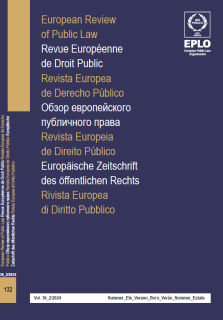
Global Law and the Black Holes (that Would Like to Gobble It Up)
Giuliano Amato
Professor Emeritus at the EUI in Florence and at the University La Sapienza in Rome, Member of Parliament, Minister and twice Prime Minister of Italy, he also was Vice President of the Convention on the future of Europe and Justice and President of the Italian Constitutional Court. Honorary Fellow of the American Academy of Arts and Sciences, he now serves as Chairman of the Global Rule of Law Commission of the EPLO (European Public Law Organization)
Globalization has spawned a global legal space; not just a potential space, but one increasingly filled with regulations, decisions, and transactions coming from a multiplicity of sources: governments, public international organizations and even private organizations. This is still a work in progress, on which a marked counter-trend is gaining ground in the name of national sovereignty. In military conflicts civilians’ and prisoners’ rights are increasingly violated, while the UN is almost powerless. Here lies the first black hole. A second black hole lies in the clauses of international charters and conventions regarding the rights of women and children, which, deprived as they are of effective safeguards, are fast disappearing. The context of international politics is key in understanding what happened and searching for possible solutions. The paper analyzes and makes concrete proposals in order to meet the urgent need to salvage multilateralism and to put it back on its feet, endowing it with the minimum amount of authority required to make compliance with it appear justified.
Keywords: Global law; black hole; United Nations; international politics
La mondialisation a donné naissance à un espace juridique mondial qui n’est pas seulement un espace potentiel, mais est de plus en plus envahi de régle-mentations, de décisions et de transactions provenant d’une multiplicité de sources: gouvernements, organisations publiques internationales et même organisations privées. C’est un processus encore en cours, contre lequel une tendance inverse gagne du terrain au nom de la souveraineté nationale. Dans les conflits armés, les droits des civils et des prisonniers sont de plus en plus bafoués, et l’ONU est quasiment impuissante. C’est là le premier trou noir. Il en existe un autre, qui réside dans les clauses des chartes et conventions internationales relatives aux droits des femmes et des enfants, qui, privées de garanties effectives, sont en voie de disparition rapide. Le contexte de la politique internationale est essentiel pour comprendre ce qui s’est passé et chercher des solutions possibles. Cet article analyse et fait des propositions concrètes pour répondre au besoin urgent de sauver le multilatéralisme et de le remettre sur pied, en le dotant du minimum d’autorité nécessaire pour que son respect paraisse justifié.
Mots-clés: Droit mondial; trou noir; Nations Unies; politiques internationales
*Published as “Giuliano Amato, Global law and the black holes (that would like to gobble it up)”, Jean Monnet Working Paper 1/24, 2024, and available at The Jean Monnet Center for International and Regional Economic Law & Justice website (https://jeanmonnetprogram.org/paper/global-law-and-the-black-holes-that-would-like-to-gobble-it-up/). It is published in the European Review of Public Law (ERPL) with permission by the author, who holds the Copyright for this paper.





















